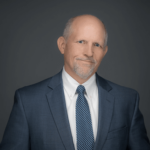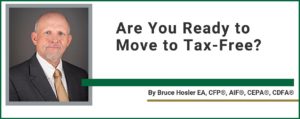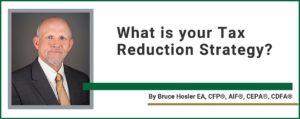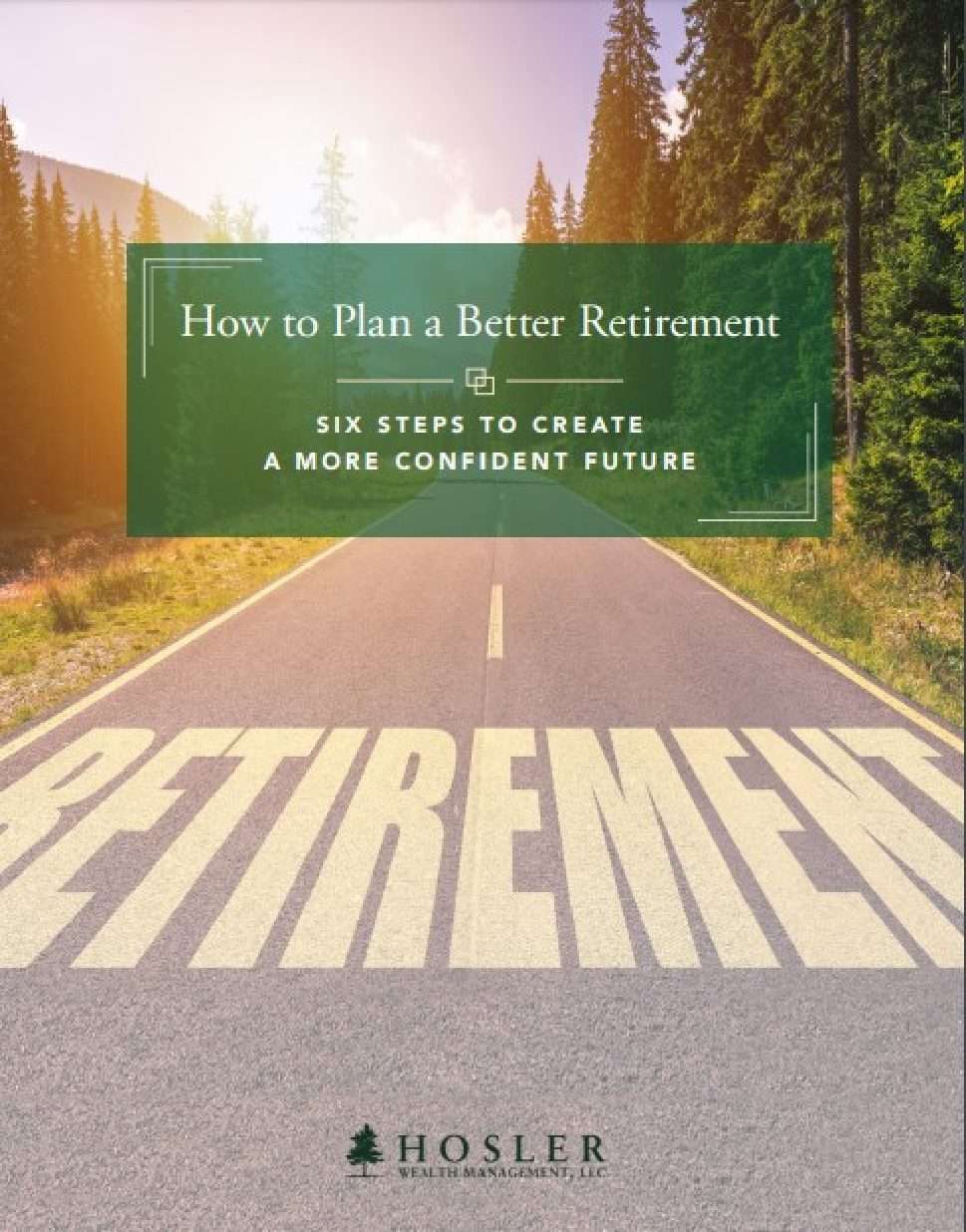Einstein said, “The definition of Insanity is doing the same thing over & over and expecting a different result.” We’ve seen some historic shifts in the markets in 2022. So why would you employ the same strategies you’ve been using for the past 40 or so years?
We’ve seen drops in stock and bond markets, rising inflation and interest rates, an energy crisis, mortgage rates go up, and so much more. In fact, Bruce Hosler of Hosler Wealth Management hasn’t seen circumstances like this in his entire 25 year career!
Conventional wisdom says to be diversified across all asset classes. While diversification is important, Bruce explains why being invested in every asset class today is a fool’s errand. For example, international holdings might not be the best investment right now.
Bruce clearly illustrates this idea with the pothole analogy – if you’re driving down the road, approaching a giant pothole, why wouldn’t you swerve out of the way?
For more information about anything related to your finances, contact Bruce Hosler and the team at Hosler Wealth Management.
Call the Prescott office at (928) 778-7666 or our Scottsdale office at (480) 994-7342.
To listen to more Protecting & Preserving Wealth podcast episodes, click here.
Limitation of Liability Disclosures: https://www.hoslerwm.com/disclosures/#socialmedia
Podcast Host

Bruce Hosler is the founder and principal of Hosler Wealth Management, LLC., which has offices in Prescott and Scottsdale, Arizona. As an Enrolled Agent, CERTIFIED FINANCIAL PLANNER™ professional, and Certified Private Wealth Advisor (CPWA®), Bruce brings a multifaceted approach to advanced financial and tax planning. He is recognized as a prominent financial professional with over 27 years of experience and a seven-time consecutive *Forbes Best-In-State Wealth Advisor in Arizona. Bruce recently authored the book MOVING TO TAX-FREE™ Strategies For Creating Tax-Free Retirement Income And Tax-Free Lifetime Legacy Income For Your Children. www.movingtotaxfree.com.
In the Protecting & Preserving Wealth podcast, Bruce and his guests discuss current financial topics and provide timely answers for our listeners.
If you have a topic of interest, please let us know by emailing info@hoslerwm.com. We welcome your suggestions.
*2018-2024 Forbes Best In State Wealth Advisors, created by SHOOK Research. Presented in April 2024 based on data gathered from June 2022 to June 2023. 23,876 were considered, 8,507 advisors were recognized. Not indicative of advisor’s future performance. Your experience may vary. For more information, please visit.
Transcript
Jon “Jag” Gay: Welcome to episode 16 of Protecting and Preserving Wealth. I am Jon Jag Gay, joined as always by Bruce Hosler from Hosler Wealth Management. Bruce, good be back with you as always.
Bruce Hosler: Jon, good morning. Thanks for being with me today to talk about insanity.
Jon: Einstein’s definition of insanity, which if you don’t know it, doing the same thing over and over again and expecting different results, right?
Bruce: Yes, we are. I’m amazed at what I am seeing in the investment industry and the attitudes that many professionals have today. Considering the times that we live in, the highest inflation rates we’ve seen in 40 years, historically, the fastest rides in interest rates in an entire life of our country. The stock market’s been down about 20% or more for most of 2022, and many investment advisors are telling their clients to continue investing the same way they have over the last 20 years.
Jon: Right back to our topic. Sounds like you’re saying the investment world has changed.
Bruce: Absolutely. Investors have stayed invested the same way they have been investing over the last 20 years and have been decimated this year by the markets, and I don’t mean just the stock market, the Barclays aggregate bond index is down 15.5% over the last year.
That means that many people have lost about 15 and a half percent. What they thought was their safe money.
Jon: They thought was their safe money is the keyword there, Bruce. You’re not saying that people should not be diversified among a number of asset categories, are you?
Bruce: No, no. I am not saying that at all. But what I will say something about is asset allocation later.
What I am saying is that the investment world has changed dramatically in a very short period of time.
Jon: Mm-hmm.
Bruce: In March of this year, the Federal Reserve started raising interest rates in this cycle of the United States. In less than nine months, they raised the Fed funds rates by 3.75%. This is unprecedented.
Never. Never since Jimmy Carter have we seen the federal government declare war on the fossil fuel industry like we are right now. The war in Ukraine has affected the worldwide energy supplies, and we have not seen that since 2008. Never in the last 40 years have we seen inflation as we are seeing it right now.
And never in 40 years have we seen mortgage rates like we are seeing right now above seven percent.
Jon: And as I’ve mentioned in the podcast before, I am 41, about to turn 42. So, everything you’re saying is, makes this unprecedented in my lifetime, essentially.
Bruce: Exactly.
Jon: So, what you’re warning our listener is that the investing landscape really has changed dramatically, especially throughout 2022.
Bruce: Yes, I am. Because I have never seen a situation like this in my 25 years professionally.
Jon: So, what should our listeners be doing different in order to achieve a different outcome and not be insane, so to speak?
Bruce: First, I want to destroy the myth that you must be asset allocated in all asset classes all of the time.
That is most likely not in our listener’s best interest.
Jon: What do you mean not invested in all asset classes, all of the time?
Bruce: Let me give you the example of being invested in international stocks over the last three years.
Jon: Mm-hmm.
Bruce: We have not felt like the international markets, especially with Covid and now with the worldwide inflation and rising interest, is an area that we wanted to be invested in.
Jon: So you are not recommending to your clients to have an investment allocation into international markets.
Bruce: That has been correct and remains correct at the current time. There’s just too much risk in those markets as we pass through these unprecedented times in the world.
Jon: Unprecedented is probably the word of the decade so far. Okay, so I think I’m with you so far, Bruce. You’re not saying our listeners shouldn’t be diversified, you’re saying they just don’t have to be invested in every single asset class all of the time, right?
Bruce: Jon, that is exactly what I’m saying. Just like you, when you’re driving down the freeway and you spot a big pothole in the road ahead, you don’t have to remain in your lane and drive right through the pothole and create damage to your car and perhaps danger to your life.
You can change lanes and avoid the pothole altogether. That is what I want our listeners to consider doing when it comes to their investments. If we clearly see a big pothole in some area of the investment landscape ahead; we can and should change lanes to get outta the way of that big pothole.
Jon: That is such a visceral analogy for me because as you know, you may be there in, uh, sunny Arizona, but I’m here in, uh, cold Michigan where it’s, uh, 39 degrees as we record this, and with the snow coming; there are gonna be those big old potholes as those roads get destroyed every single winter. So, that analogy is just so stark for me. I’m gonna think of you the next time I swerve out of the way of one of those big old potholes, Bruce.
Bruce: Perfect. That’s what I want. To do the same thing with your investments.
Drive right around that big pothole, Jon.
Jon: I like it. So, I guess the Federal Reserve raising interest rates, trying to create demand destruction is creating those big potholes for a lot of investments, right?
Bruce: You’re understanding my thoughts perfectly. Let me share just several examples that everyone should be able to see and understand.
Example number one. The Federal Reserve has raised interest rates so high that now mortgage rates for a 30 year mortgage are above or at 7%. What do you imagine that will do to the demand for new housing if mortgage interest is two times as much as it was just a year ago?
Jon: I’m sure it’s gonna go way down. It’s conversations we’ve had in my house between my wife and I. Um, there are gonna be folks who are not able to afford a mortgage payment, or at least fewer people are gonna be able to.
Bruce: Exactly. So, what do you want to be investing a lot of new money into right now? Residential real estate – when the home prices are likely getting ready to drop like a rock?
Jon: No way.
Bruce: We just wanna change lanes and put our investment dollars in other more attractive investment lane asset classes. We wanna move our investments to an asset class that has a much brighter future looking forward. Now notice if someone is following conventional investment wisdom, where they keep doing the same thing they’ve been doing over the last 10 years during the real estate boom.
They will continue to put money to work in real estate right now when it is likely overpriced for the new higher interest rates and with a high probability of beginning to drop.
Jon: So, in this crazy world that we live in now, Bruce, what examples do you have of areas where people may want to invest that provide better opportunities and swerve around those potholes that we can see right in front of us?
Bruce: So, let’s consider what our government is doing to the fossil fuel energy companies. First, president Biden is against fossil fuels. He wants the country to be using what he considers to be cleaner energy sources like solar and wind. And I’m not here to get political, but due to the war in Ukraine and the US policy on fossil fuels, there is a very evident shortage of gas, natural gas, and oil, not just in our country, but around the world.
Some energy indexes are up more than 60% in the last year, while the rest of the S&P 500 is down around 16% year-to-date. Does it look like the worldwide energy shortages are gonna be fixed anytime soon? No way. So as an observant investor, we could increase our exposure and investment in those companies in this sector of the economy and help avoid some of the disaster that we are continuing to experience in the S&P 500.
You know, the insanity of continuing to do the same thing and expect a different outcome.
Jon: Right back to the title of this episode. But Bruce, many investors have had success in investing in the S&P 500 over the last 20 or so years.
Bruce: Jon, I hear that and I understand that people can expect something that has been successful for them in the past, will continue to perform successfully the same way in the future, but we are not in the same environment right now.
There is a big pothole in the road ahead. Over the last 20 years, the Federal Reserve has been stimulating the equity markets with cheap money and low interest rates. That is not the current environment we are investing in today. The Federal Reserve is trying to kill inflation, and it appears they’re prepared to kill the economy and some companies along the way in order to achieve their goal.
Jon: It is a very fine line to walk trying to stave off a recession, but not to kill the economy, just like you said.
Bruce: Yeah, everybody’s hoping for a soft landing. You’re right, Jon, but it looks like it’s gonna be very hard to achieve.
Jon: Yeah. Very, very difficult. I hear what you’re saying Bruce, but what about diversification?
Uh, we’ve long been told that our investments do need to remain diversified, right?
Bruce: I am not saying that we don’t need to remain diversified. I am saying that we don’t need to be invested in all of the companies in the S&P 500 in this inflationary environment and the higher interest rate environment.
Some of these companies are going to encounter great difficulties going forward with higher interest rates, staff shortages, and inflation.
Jon: Think I’m beginning to understand your thought process here, Bruce. You feel it’s just as important avoiding certain companies and sectors of the market as it is in choosing the investments that we invest in?
Bruce: Exactly. Continuing to hold the same investments without making any changes, will provide our listers with the same results they’ve been experiencing all year in 2022. Disappointing at best, expecting a different result without making any changes is still insanity.
Jon: So, I’m gonna step away from the financial piece and I’ll bring it back to my previous life as a radio DJ.
I saw that radio was shrinking, radio was really falling off, and that’s why I pivoted and got out of radio and got into podcasting because it’s the same thing. Doing the same thing that’s worked for 20 or 30 years. Uh, you’re gonna go the way of the VCR or the blueray player. We’re all on, uh, podcasts and Netflix now.
The world is changing and I think you make some really good points here, Bruce about needing to change with it, and your bottom line really does depend on it, right?
Bruce: Correct. I’m not saying that the S&P 500 in the future time may not be a good investment again; I’m just saying that right now, the broad markets are gonna experience a lot of difficulty because of the rising interest rates, the likely recession or slowing that we’re gonna see, and that there are better investment choices out there.
And our clients need to be open to that. They need to be flexible in changing what their outlook is, because what’s worked in the past, clearly has not worked in the last year.
Jon: Very true. And this goes back to something we talk about in every episode, Bruce, and that is having a financial plan, working with someone to create that plan.
But, it’s not a static plan. You don’t just set it and forget it and retire 30 years later. You need to be willing to adjust as the world changes and as the financial markets change as we’ve been illustrating here. If somebody wants to come talk to you and your team at Hosler Wealth Management about creating that plan and adapting it to our current times, what are the best ways to find you?
Bruce: They can first reach us on the website at https://hoslerwm.com. They can reach us in Scottsdale at (480) 994-7342 or in Prescott (928) 778-7666. Thanks, Jon. It’s been a great conversation today.
Jon: Absolutely, and very eye opening for me as well, Bruce. We’ll talk again in a couple weeks.
Securities advisory services offered through Commonwealth Financial Network®, member FINRA/SIPC, a registered investment advisor. Forward looking commentary should not be misconstrued as investment or financial advice. The advisor associated with this podcast does not monitor for comments and any comments should be given directly to the office at the contact information specified.
Any tax advice contained in this communication, including any attachments, is not intended or written to be used and cannot be used for the purpose of 1) avoiding federal or state tax penalties, or 2) promoting marketing or recommending to another party, any transaction or matter addressed herein. The accuracy, completeness, and timeliness of the information contained in this podcast cannot be guaranteed.
Accordingly, Hosler Wealth Management LLC does not warranty guarantee or make any representations or assume any liability with regard to financial results based on the use of the information in this podcast.
Comments are closed.




